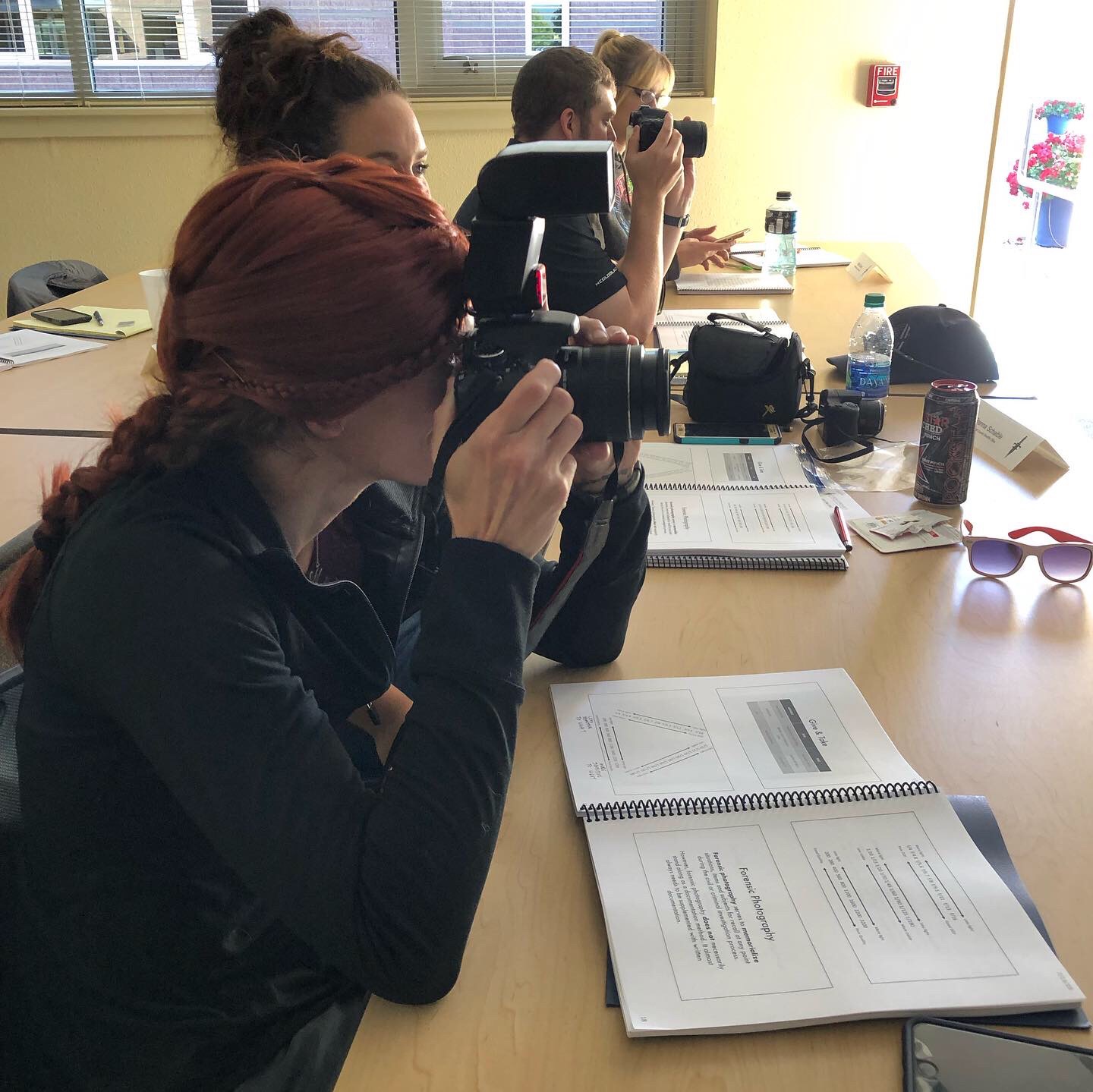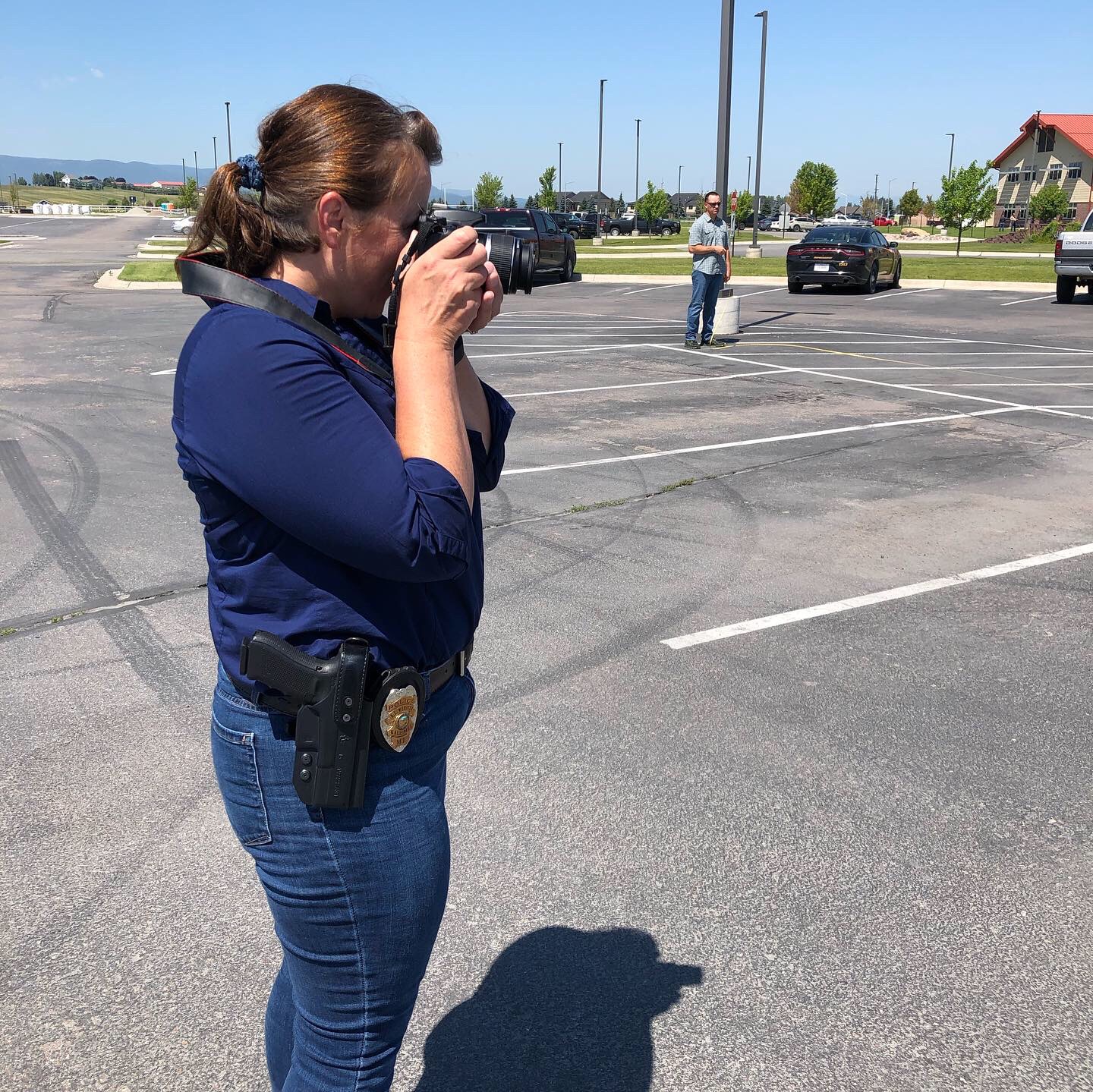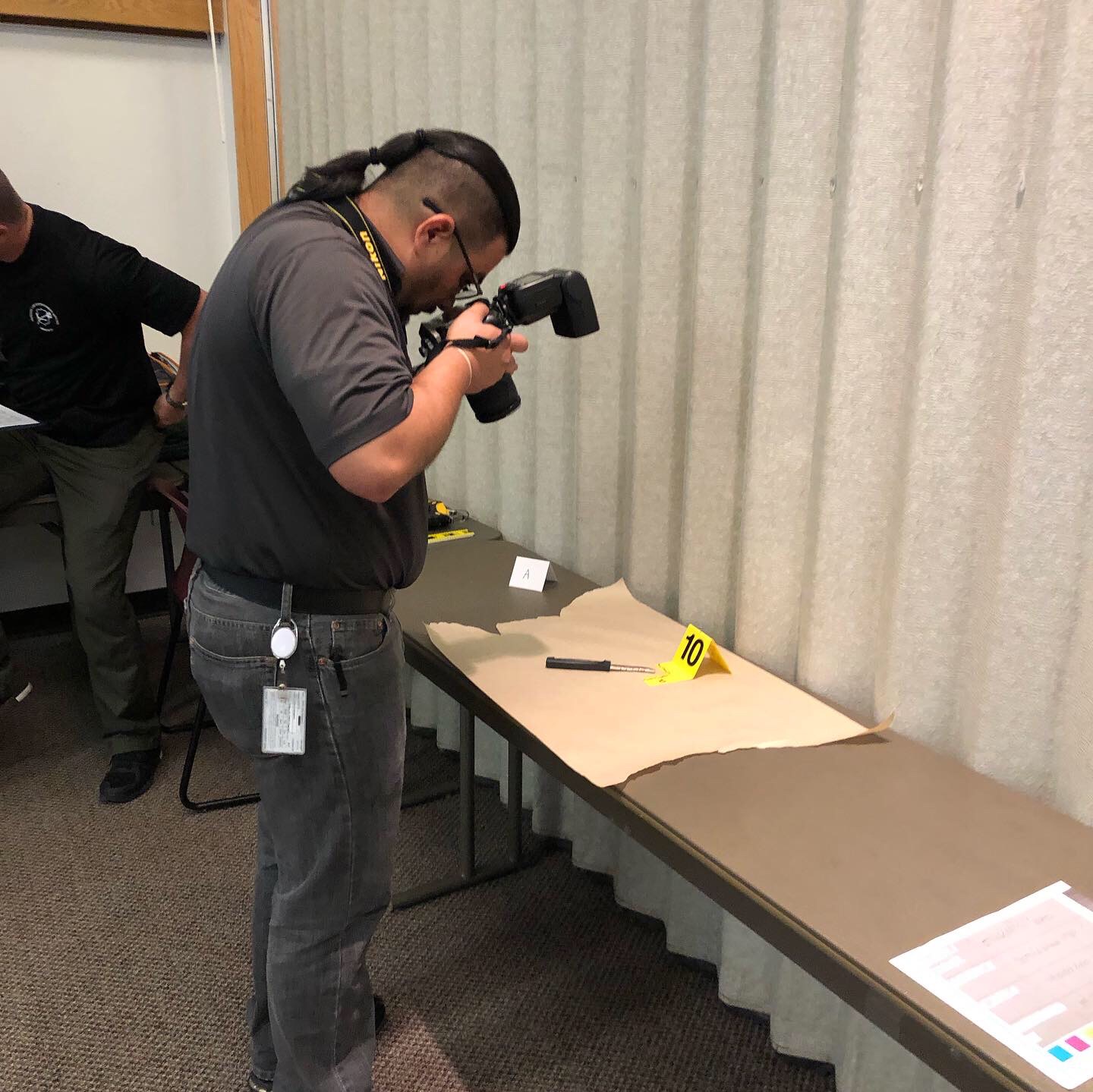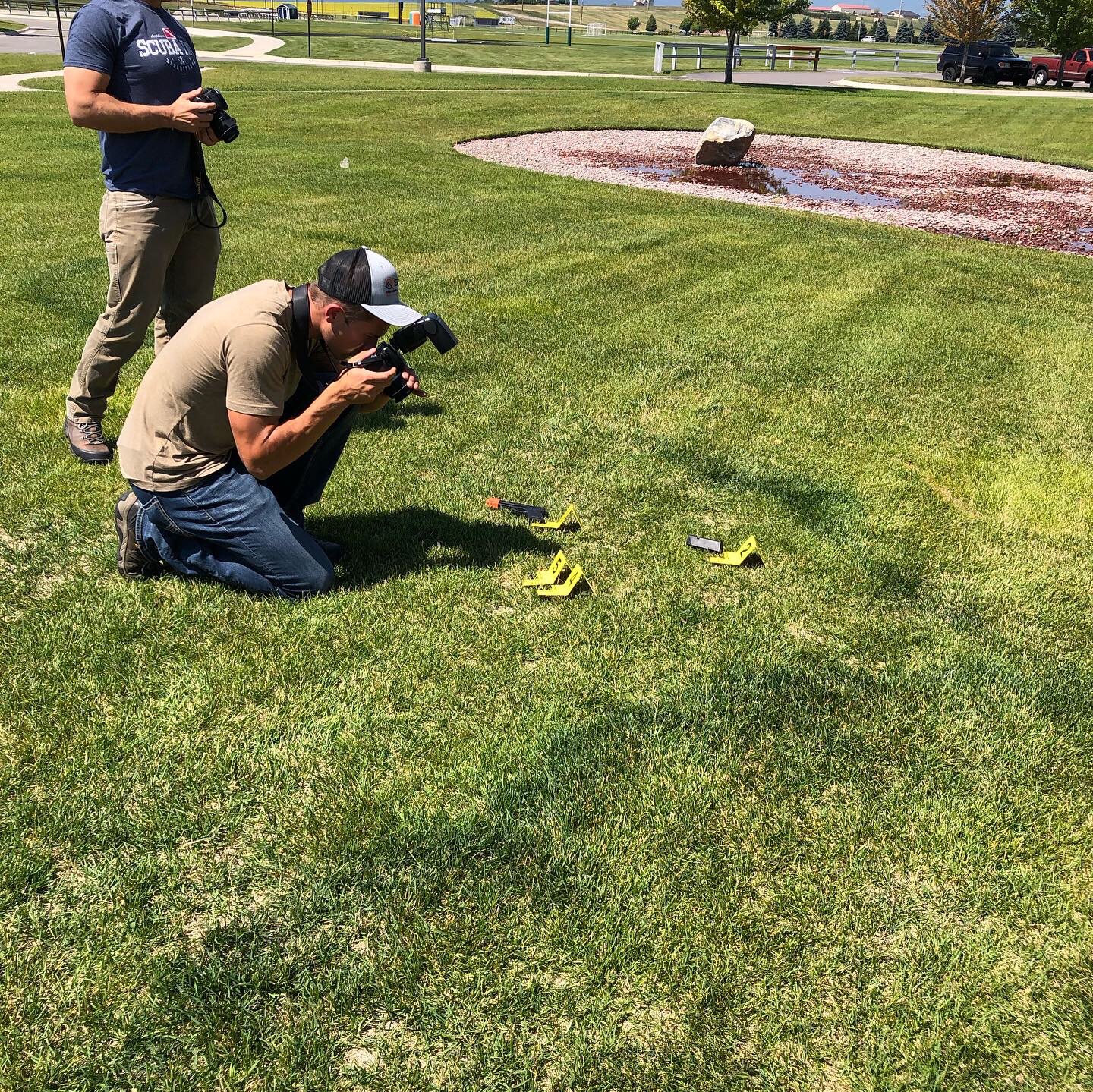Course overview
Crime scene photography requires certain skills and experience to properly document the events of a crime. It's imperative that crime scene investigators are able to take quality photos of a wide variety of subjects in less than idea conditions. This 40 hour hands-on course is designed to not only familiarize beginner to intermediate level students with the principles of photography, but to also establish skills documenting crime scenes, evidence items, subjects, injuries, vehicles, and much more. Forza Forensics is committed to working with your organization's personnel to make them better equipped to handle any investigative situation.




Day One.
Students can expect to spend the first day reviewing the history of forensic photography, the basics of light and a covering the basics of camera equipment. Lecture and practical exercise topics include:
History or forensic photography
Case law & working group guidelines
The nature of light & optics
Camera set-up & proper care.
Camera settings.
Proper digital storage & storage media
Day Two.
Day two students learn the principles of photography and functions of their cameras in order to take properly exposed and in focus photographs. Students also begin to develop skills using flash to properly light their photos. Lecture and practical exercise topics include:
Exposure triangle
Light metering
Costs and benefits of shutter speed, f-stop & ISO.
Composing a proper photo
Flash modes
Flash limitations
Day Three.
Day three combines the skills students gained taking photographs and combines it with their work as crime scene investigators. Students learn some cardinal rules for forensic photography and begin learning to take overall, mid-range and close-up photos. The day culminates with a mock crime scene. Lecture and practical exercise topics include:
General rules for forensic photography
Distortion and focal lengths
Overall, mid-range & close-up photographs
Macro photography
Use of scales in forensic photography
Day Four. (evening start option)
The last class introduces students to setting up and capturing photos using long exposure and painting with light techniques. Student use everything they have learned over the last four days to properly compose long exposure and painting with light photos. Students have the option to begin class in the evening to provide nighttime condition. Lecture and practical exercise topics include:
Camera and equipment set up
Composing long exposure photographs
Composing painting with light photographs
Day Five.
In day four, students hone their skills in crime scene and evidence photography even more by learning the proper procedures and potential challenges photographing vehicles. The second half of the course teaches students how to properly document subjects and related evidence. Lecture and practical exercise topics include:
"8-way" vehicle photographs
VIN & license plate photographs
Using flash in vehicles
Collision photographs
"4-way" subject photographs
Clothing & evidence photographs
Course links
basic crime scene photography course syllabus
course policies
Upcoming.
If you have any questions about registration email us at info@forzaforensics.com
Course requirements.
Students will need to bring any camera equipment normally carried while on duty.
This should include: DSLR camera, camera lenses, tripod, external flash, extra batteries for flash, flash cord, remote shutter release.
IAI Approved.
This course is approved by the Crime Scene Certification Board of the International Association for Identification for 40 hours towards certification and re-certification credit.
*No Forensic Photography & Imaging Certification credit is given for this course

